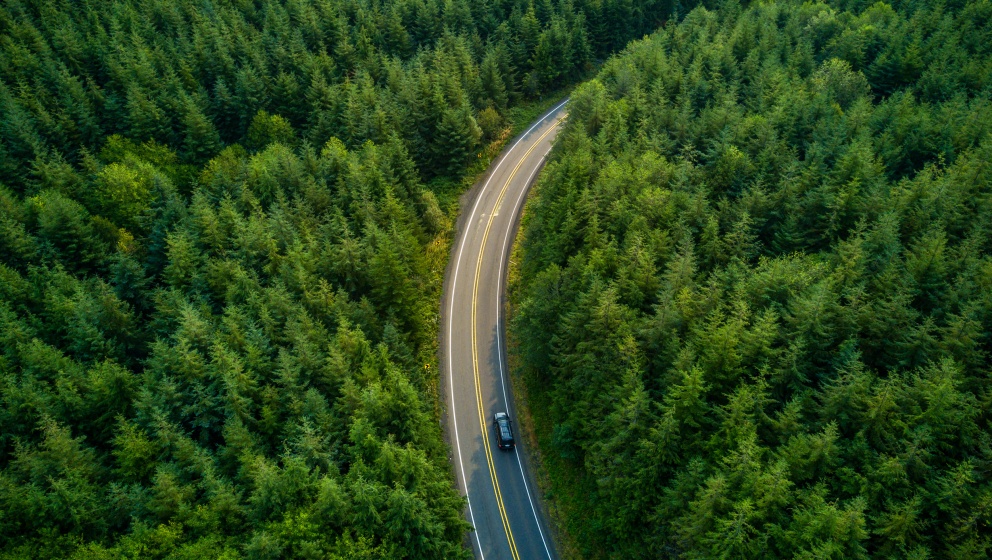By Seattle Times Jeff Layton
When city dwellers get fed up with the expense and congestion of urban life, they frequently entertain the same dream: pack it all in and move to the country.
Maybe you’ve been thinking about building a small vacation house (or a forever home) on a quiet piece of land, but don’t know where to start. It’s understandable. For those considering constructing a country escape, there’s a steep learning curve.
These four stories contain some of the major factors to consider before taking the plunge, as well as insights I gained from my own experience building a home outside of Leavenworth.
They include information on: picking the right site — and the right crew for a job outside the city; the realities of how much a new build will cost, as well as ways to DIY some projects to stay on budget; understanding the timing of a project that’s at once drawn out and frantic; and things to consider when you’ll be away for long periods at a time.
Finding a buildable property
Locating the right property is one of the biggest challenges of building in a rural area. Not every lot is suitable, or the costs to develop the lot may break your budget. If you’re too far off the beaten path, a huge portion of your budget will go toward an expensive infrastructure such as road building and utilities.
Rural properties must also meet environmental criteria. You’ll probably have to drill a well. The lot must be large enough to place a septic field and the soil must percolate.
Steep slopes, shorelines, and wetlands may dictate where you can build, or whether you can bring in certain construction equipment.
The easiest solution is to build in a housing development, but close neighbors may defeat the purpose of building in the country.
Building for the surroundings
While it may be tempting to choose a design from a catalog, in truth, it’s the site that chooses the house. The Northwest has some wildly different climates, and your house should be able to handle the local conditions.
In the Cascades, houses that handle the snow poorly are nicknamed “westside homes” because snow avalanches over entrances or piles up in huge drifts against the house.
If you’re building near the ocean, the design should handle lots of rain with big eaves and rot-resistant materials. West-facing windows in eastern Washington could make your house unbearably hot in the summer. In the forest, your house will be dark unless you have plenty of windows.
Doing some work yourself
If you have the skills (or want to learn), you can save money by doing some of the building yourself. This is especially valuable with expensive finish carpentry.
General contractors may let you do some of the work; just make sure the arrangement is clearly spelled out in your contract. And don’t underestimate the time demands (or overestimate your skills), or you’ll slow down your project.
Those with construction experience are often tempted to act as their own general contractor. But a local builder is more likely to have relationships with local subcontractors, and can put pressure on them to keep your project on schedule. You may also have trouble sourcing people, and may even be forced to pay extra to bring in workers from elsewhere.
Building your own house is incredibly gratifying, just know that construction skills take practice and your house may not turn out as polished as one done by a pro.
The process is lengthy
Expect a minimum of two years to pass from the moment you decide to build until the time you can occupy the dwelling. If you plan to do some of the work yourself, it likely will take even longer.
Building in the city is relatively simple since you can hook up to water, sewer and power. In the country, an extensive amount of time is spent answering the “Can I build here?” question.
Before you even proceed with plans and permits, you’ll likely have to survey the land, plan a septic field, dig a well and schedule geologic testing.
It’s also rushed
A surprise to many is that the actual building window for new construction is fairly short. You usually have about one year to finish the house after breaking ground.
Building permits don’t stay open forever. Construction loans are even more demanding and require you to finish on time or pay penalties.
That doesn’t mean your house must be 100 perecent finished in a year. You just need an inspector to grant you “occupancy,” which means the major requirements, such as electrical and a working bathroom, are complete.
It can consume your free time
The biggest downside to doing some or much of the work yourself is the time required. Even a simple job, such as installing trim, can take several weekends.
If the whole point of building in the country is to escape city life, do you really want to spend of every weekend and holiday working on your house?
Even if you hire professionals, you can still expect maintenance, decorating and landscaping to consume much of your free time.
Plan to be away
Like cars, houses don’t do well if they sit unused for long periods of time. If you’re building a vacation home, a host of problems can arise while you’re away. A tree can fall on your house, pipes may freeze or mice can infest your house without you knowing it.
Even if nothing dramatic happens, you can expect to spend many weekends fixing and maintaining various issues. It helps to have a trusted neighbor or a property manager to keep an eye on things and help you during an emergency.
Make extra money with Airbnb (maybe)
Many people envision using rental income to pay for their country getaway. In certain areas, offering your house as a short-term rental can pay the mortgage and then some.
Move in permanently
Before making the leap to living in the country full time, you should imagine what it would be like to live there permanently. Will it be lonely without friends nearby? If you dread living without delivery pizza, ballgames or good libraries, it’s probably not a wise move.
Also, most rural areas have poor cellphone service and slow internet. As you imagine living somewhere (or you need to work remotely), you have to decide if dial-up-like internet speeds and land lines are worth the trade-off for a country life.
Jeff Layton


